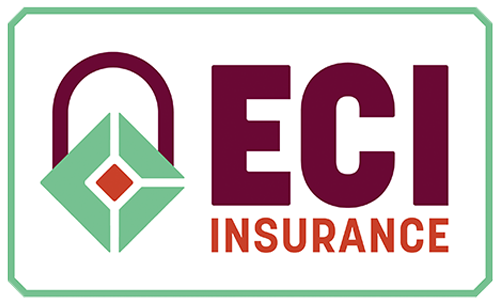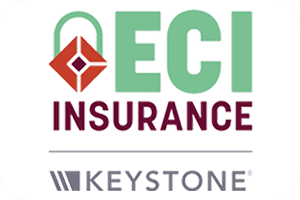Does my homeowners insurance cover Airbnb or VRBO properties?
The vacation home rental market has completely blown up in the past few years. With people longing for a more cozy approach to their weekend getaways or vacations AirBNB and VRBO rentals have become a booming market. Since property is one of the most expensive and rewarding investments you can make, one of the top questions we get is whether or not a home policy will cover your house if you use it as a vacation rental or you rent one.
Homeowners insurance coverage was developed to offer protection in the event catastrophic things damaged your house such as fire, lightning, and wind Things quickly get murky when you operate a business in your home though— and insurers typically consider home-sharing a business activity.
Many homeowners insurance policies offer protection for the occasional rental, as long as you inform the company beforehand-its important to double check with your company BEFORE you do this so that it doesn’t open a can of worms. If you rent out your property on a regular basis, a standard homeowners policy isn’t likely to provide adequate coverage. Home insurance policies often exclude taking on responsibility for any liability from business activities run out of your home. This would include if a gueset was injured on the property or they damaged your property or someone else’s. If you are relying only on your homeowner’s policy, you may find you are underinsured or not covered correctly.
Home-sharing—what are the risks?
It goes without saying that opening your home to complete stranger comes with risks.. Vandalism, theft, and accidental property damage are serious concerns that any host should be aware of. Should a guest damage your belongings or incur bodily injury while staying on your property, you could be exposed to risk if you don’t carry the correct insurance.
Landlords may be liable for the actions of tenants renting out their apartments. If a guest is injured, the landlord — as the owner of the property — could be held liable. This is one reason that many leasing agreements explicitly prohibit home-sharing.
What is home-sharing insurance?
Regular home insurance coverage provides liability for something the owner is responsible for in regards to injuries or damaging someone else’s property and also pays to repair or rebuild the home if a covered loss happens. These coverages may be nullified if you operate a business on your property. Regular home-sharing is considered to be a business activity.
In some cases, insurance companies offer protection for Airbnb or VRBO hosts with tenants who stay only occasionally. Bear in mind, however, the major differences between a one-off rental situation and the operation of a dedicated Airbnb business. To carry coverage in the latter case, you will need a home-sharing endorsement or a separate commercial insurance policy. This is something that a knowledgeable agent can walk you through.
A home sharing endorsement, also known as a AirBnB endorsement or VRBO endorsement may be available through your current insurance company. These cover theft and property damage. Certain endorsements may cover liability, theft, vandalism, as well as damage to guests’ property.
However, if property rentals comprise a significant portion of your income, you may need to purchase a separate insurance policy. In many cases a landlord policy may suffice. Landlord insurance covers the the main home on the property, contents like furniture and appliances inside the dwelling, lost rental income, and any liability claims filed against you.
Some companies sell specific insurance products specifically tailored to Airbnb and the home-sharing industry. This is often known as short-term rental insurance. These policies cover issues such as accidental damage to property, infestations, and sometimes even minor mold. These policies also increase your personal liability coverage substantially, even covering legal fees in the event claims are made against you.
Does Airbnb offer insurance?
Some home-sharing companies offer a form of coverage for hosts. For instance, Airbnb’s Host Protection Insurance provides up to $1 million USD for liability. The coverage extends to Airbnb hosts — as well as landlords — that face third-party claims against them resulting from an Airbnb stay. Airbnb also offers a Host Guarantee. This product is not technically insurance, but it does help to cover the costs of damage caused by guests.
It’s important to be aware of the gaps in Airbnb’s insurance coverage. Airbnb Host Protection Insurance does not cover loss of income, intentional acts, or mold. It is not intended as a replacement for homeowners insurance, and should instead be treated as supplementary protection to your primary coverage. Also, be aware that the claims process can be tedious, as claims go through Airbnb directly and are not handled by your own insurance company.
Insurance for VRBO, HomeAway, FlipKey, onefinestay, and others
Sites like VRBO, Homeaway, FlipKey, and onefinestay offer advice on suggested insurance coverage as a host. VRBO suggests using a vacation rental policy which can be done through a local independent agent. The key to these types of policies is making sure coverage can rotate between being rented out, being owner-occupied, and sitting empty for long periods.
HomeAway offers $1 million in liability coverage for its users, while onefinestay has a policy underwritten by a syndicate of Lloyd’s of London, though the details on the coverage are vague. FlipKey suggests finding an insurance company that offers home-sharing coverage.
Will Renters insurance work for Airbnb and home-sharing?
If you’re renting your home, it can be possible to still use your home on a home-sharing site. The first thing that needs to be verified prior is checking with your landlord and rental contract whether that’s allow. Many leases explicitly prohibit such activity, so it always pays to check. Some renters forgo getting permission from their landlord, which can lead to trouble if an insurance claim is necessary, potentially resulting in eviction.
After receiving your landlord’s consent, the next step is to consult you Renter’s insurance policy for any issues that may come up with coverage. Some insurers may not allow you to rent out your apartment for longer than a certain duration, while others might restrict how much money you’re allowed to make via home rentals each year. Some renters insurance companies may not offer Airbnb coverage at all.
As with homeowners insurance, it’s always wise to check with your renters insurance company to explore your options.
Insurance for Airbnb guests
In most cases, your homeowners or renters insurance policy will provide you a fair amount of protection while you’re traveling. Your personal belongings are covered against most losses, including theft or fire. With most companies, personal property coverage for belongings outside your residence is 10% of your home coverage limit or up to $1,000, whichever is greater. There will be a deductible and it’s important to verify with your company since not all insurance is created equal. This may be limited to theft alone on certain policies, so you’ll need to check with your insurance company. Travel insurance is also a great option to consider while staying in an Airbnb or similar short-term rental.
Airbnb insurance considerations
The rise of home-sharing services threw the insurance industry a curveball. Insurers are still adapting, meaning that short-term rental insurance is continually evolving. For this reason, one of the most important things you can do before becoming a host is to inform your insurance company. The company can then help you determine what’s covered by your current homeowners policy, as well as whether or not you’ll need an Airbnb endorsement or altogether different coverage.
Written by: Avery Moore
Read more Blog posts by Avery Moore


